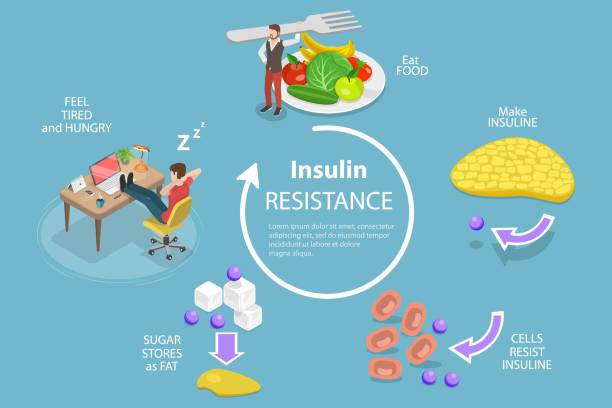Understanding how blood glucose (sugar) and insulin work in your body is the foundation for knowing how diabetes works. If you know what can affect your blood glucose (sugar) levels, you will manage it better. The basics of hyperglycemia
Diabetes is a problem in the body that causes blood sugar (also called blood glucose) levels to rise higher than usual. This is also called hyperglycemia.
When you eat, your body converts food into sugar and sends it into your blood. Insulin then helps move sugar (glucose) from the blood into the cells. When sugar (glucose) enters cells, it is either used as fuel for primary energy production or stored later. In a person with diabetes, there is a problem with insulin. But not all people with diabetes have the same problem.
There are different types of diabetes: Type 1, Type 2, and gestational diabetes. If you have diabetes (Type 1, Type 2, or gestational), your body doesn’t make enough insulin, can’t use insulin well, or both.
Type 1
In Type 1 diabetes, your immune system mistakenly treats the pancreas’ insulin-producing beta cells as foreign invaders and destroys them. This can happen in a few weeks, months, or years.
When enough beta cells are gone, your pancreas stops making insulin or makes so little insulin that you need to take insulin to live. Type 1 diabetes most often develops in young people, but it can also appear in adults.
Type 2
If you have Type 2 diabetes, your body doesn’t use insulin properly. This is called insulin resistance. At first, the beta cells make extra insulin to compensate. But, over time, your pancreas can’t make enough insulin to keep your blood glucose (sugar) at normal levels. Type 2 diabetes most often develops in middle-aged and older adults but can appear in young people.
Some people can manage Type 2 diabetes with healthy eating and exercise. However, your doctor may need to prescribe oral medications (pills) or insulin to help you reach your blood glucose (sugar) goals. Diabetes is a progressive disease. Even if you don’t need to treat your diabetes with medication at first, you may need to overtime.
Gestational diabetes
Gestational diabetes is diabetes that develops during pregnancy. For most women, blood glucose (sugar) levels return to normal after the baby is born. And if you’ve had gestational diabetes, you’ll need to be tested regularly, as you’re at much higher risk of developing Type 2 diabetes later in life.
So what affects my blood sugar levels?
It’s essential to understand what can make your blood glucose (sugar) level go up or down so you can take steps to stay on target.
Factors that can cause your blood glucose (sugar) level to rise include:
- A meal or snack with more food or more carbohydrates than usual
- Inactivity
- Medication side effects
- An infection or other illness
- Changes in hormone levels, such as during menstrual periods
- Stress
Factors that can cause your blood glucose (sugar) to drop include:
- A meal or snack with less food or fewer carbohydrates than usual
- Extra activity
- Side effects of other medications
- Skipping a meal or snack
- Drinking alcoholic beverages (especially on an empty stomach)





